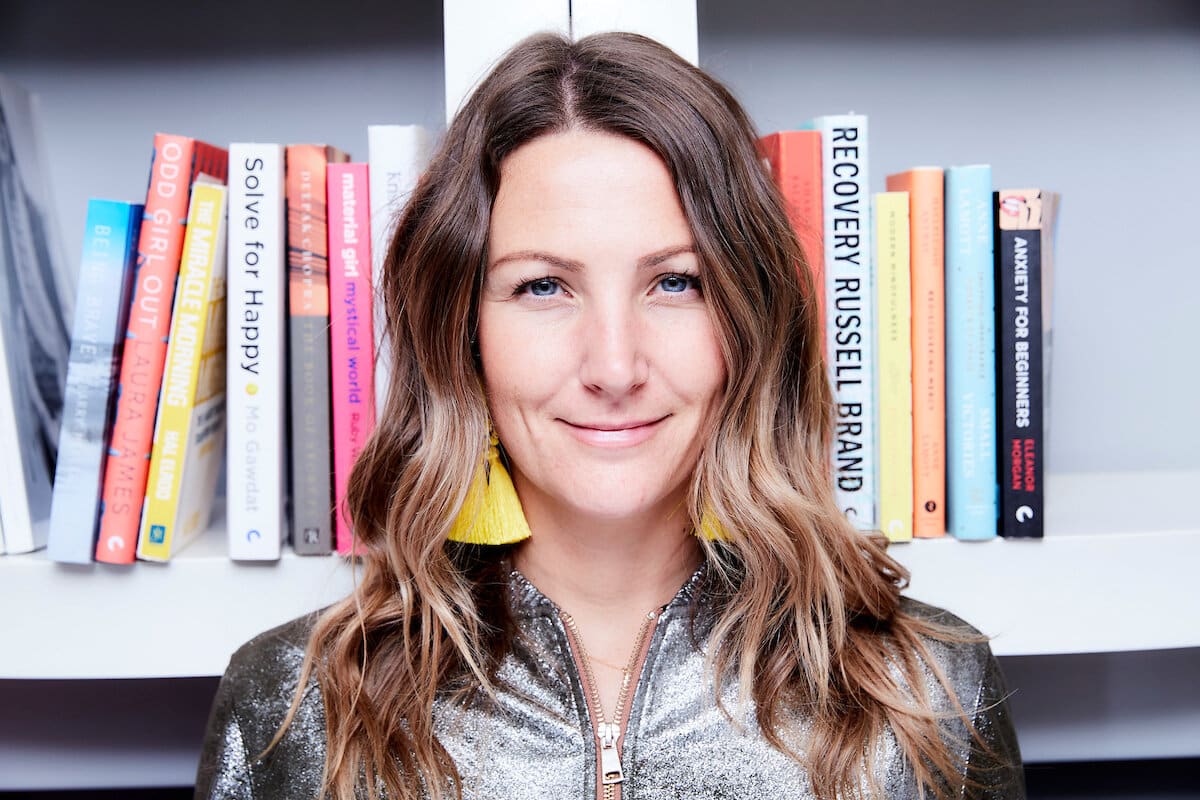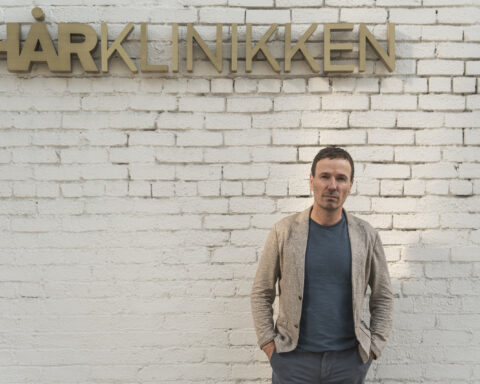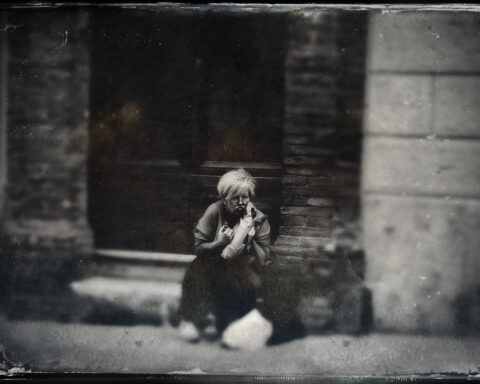January is traditionally a time to make grand plans and sweeping resolutions, and it has been scientifically proven as the best time of year to make fresh starts, because humans are more likely to tackle new goals following a ‘salient temporal landmark’ (that’s psychologist speak for New Year’s Eve).
But January 2021 is a January like no other. We’re at the start of a new year that absolutely cannot be planned for. How are we expected to stay sober when the world has gone crazy? What’s the point in joining a gym that might be closed before we get a chance to rock out our new gear? Why would we ever start saving, or trying something new, when it feels as if life as we know it could implode anytime soon?!
Resolving to be a better person might be a bit of a large ask in the midst of a worldwide pandemic.
And yet, as founder of a global self-help book club — shelf help. — I’ve been surprised and delighted to see a huge upswing in followers and members already this year, as people start to take advantage of this enforced slowdown and join us to reevaluate their priorities and life direction.
The simplicity of life in a pandemic, with less options and distractions and minimal FOMO, means that while it’s not a time for planning and looking ahead, it is a brilliant time for self-reflection and looking inwards.
Some of us spend thousands on retreats trying to create the kind of physical, mental, emotional and social space that coronavirus has given us. And for once, we actually have the time to read all those self-improvement books we’ve been promising to read (just as soon as we improved our work-life balance).
I founded shelf help. in 2017 because it was something I needed as I embarked on my own self-help journey and wanted to connect with like-minded readers and seekers, as well as share everything I was learning that was making such a huge impact on my life (recovering journalist over here!). I call shelf help. a book club, but really we are about connection; connecting people with books, ideas, experts and each other to inspire positive change and good mental health. My aim is to simplify and demystify ‘self-help’ and prove that working on ourselves doesn’t need to be scary or woo-woo or weird (there’s a reason so many of the most successful people in the world are huge self-development geeks).
And so, as we begin a shiny new year, instead of making resolutions to be a new you, I would like to invite you to embrace the mindfulness of our current pared-back life and give yourself a chance to get to know the current you that little bit better. Here are five reads I think are perfect for right now….

Atomic Habits by James Clear
Habits and routines are the things that got most of us through 2020. Some good and some we might not be too proud of (you’ll find no judgement here). And with 2021 set to be as unpredictable as its predecessor we want to set ourselves up with strong mental foundations. We all have habits, whether we’re conscious of them or not, and so we may as well make them for work for us. This game-changing guide from habits guru James Clear is the bible when it comes to building good ones and breaking bad ones. “In the long run, the quality of our lives often depends on the quality of our habits. With the same habits, you’ll end up with the same results. But with better habits, anything is possible,” he says.

Designing Your Life by Bill Burnett and Dave Evans
Being honest… who hasn’t, at one time or another, wished that the world would stop just long enough that we could get a grip on what we really want to be doing with our careers and futures and lives? Well, this is your chance. The world — especially the business world — has stopped turning in many ways, and so this is the perfect time to try out some of the new life design strategies introduced by these two Silicon Valley designers and Stanford professors. Initially designed as a post-grad course for bright young things who had all the qualifications but zero idea about how to make a good life, this book invites you treat — and design — your career like a product, complete with reframing, prototyping and mind-mapping exercises that will help you craft and refine the perfect career roadmap until it is exactly what you want. If not now, when?

Lost Connections by Johann Hari
“The opposite of addiction is not sobriety. The opposite of addiction is connection,” said British journalist and author Johann Hari in the celebrated TED Talk that followed the publication of his best-selling book on drugs, Chasing the Scream. His follow-up book, Lost Connections, is an inside look at one of the world’s most insidious pandemics; the rise of depression and anxiety and the meds that claim to treat them. This eye-opening book follows Hari (who had himself spent 18 years on prescription anti-depressants before researching this book) as he uncovers nine different reasons for depression — seven of which are non-biological and entirely due to crucial changes in the way we are living — and the resulting disconnection and disengagement from ourselves and the world. When published in 2018, this book was a call-to-arms for more connection and compassion in society, a message which seems more important than ever.

Solve For Happy by Mo Gawdat
Why doesn’t somebody just write a guidebook to being happy?! I get asked that a lot. Well, they did. And it’s brilliant. And much easier than we think. That somebody is Mo Gawdat, ex-chief business officer of Google [X], a serial entrepreneur and author who spent 12 years researching the topic of happiness and created an algorithm and a repeatable, well-engineered model to reach a state of uninterrupted happiness regardless of what’s going on in our lives. This happiness model proved highly effective and, in 2014, was put to the ultimate test when he lost his son Ali to preventable medical error during a simple surgical procedure. Following the death of his son, Gawdat wrote this book and started on a mission to deliver his happiness message to one billion people around the world. This book and Mo’s words of wisdom have been a brilliant source of comfort to lots of our members over the past few months as global events have continued to rock our world. “Slowing down is the only way we can move forward,” he told me when I interviewed him for the shelf help. podcast towards the end of the first lockdown in the UK last year. And and his own podcast, Slow-Mo, is also a brilliant guide to doing just that.

Crazy Good by Steve Chandler
I want to be Steve Chandler when I grow up. As a world-famous success coach and the author of more than 30 books, Chandler — also known as the coach’s coach — knows a thing or two about creating a (crazy) good life and this book is actually a really easy-to-read series of choices we are invited to make that could help push ourselves beyond what we thought possible. I absolutely believe that life — and growth — is about choices. Life happens. Sometimes it’s brilliant and sometimes it’s more testing (and right now it’s especially testing) but we always have a choice as to how we respond, and here’s a whole book offering inspiring, easy-to-follow advice on making the best ones (hint: don’t send that angry email). Another reason to love this book is that Steve loves using quotes from Bob Dylan. And the Beatles. And Leonard Cohen. And isn’t Cohen’s ‘Anthem’ really the ultimate self-help soundtrack for 2021? “There is a crack in everything, that’s how the light gets in.”
Find out more about the club at shelfhelp.club and read Atomic Habits — the group’s Book of the Moment for January and February — as part of their online membership at shelf help.clubhouse
Instagram: @shelfhelp.club
If you make a purchase through a link on this site we may receive a commission, at no extra cost to you, which helps us to continue to produce our content.











